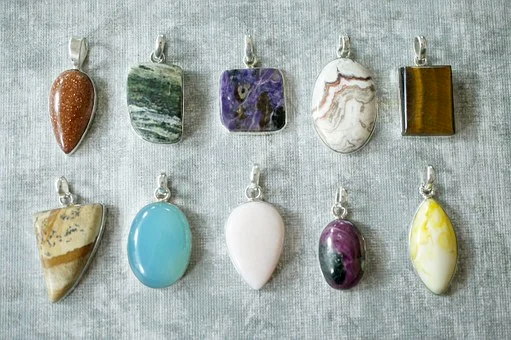Wear Clothes That Flatter Your Body
Much of our physical characteristics are defined by our genetic makeup, so instead of wishing for a different body type than the one you inherited at birth to fit the clothes you like, choose clothes that fit well and flatter the body you have. You’ll feel much more comfortable in your own skin, and you’ll be able to highlight your most attractive features by selecting the right piece of clothing: sleeveless tops to accentuate your arms, wide-legged trousers to balance broader shoulders, or V-necks to elongate your torso. So pick up a few flattering pieces and go from day to night in style.
Add Accessories that Make You Sparkle
The right accessory can brighten up or update any outfit and make you feel like a million bucks. Adding a belt to your dress or suit can help define your waistline; a pretty scarf around your neck can bring a touch of whimsy to what you're wearing. And don’t forget to include jewelry to complete your look as you get ready for the day. Tiger’s eye jewelry is a timeless classic that can effortlessly bring an outfit together. Some believe that this golden to red-brown gemstone has healing properties for the body, the mind, and the soul, and that it can even eliminate negative energy; so wear it as a bracelet, a pendant, or earrings and experience its benefits for yourself.
Make Exercise a Part of Your Day
Whether you get up early in the morning and go for a jog around the neighborhood or you use part of your lunch hour to hit the gym and do some cardio, getting some exercise is not just good for your body, it’s also great for your mind. Studies have shown that moderate aerobic exercise for 30 minutes a day helps lower your blood pressure while improving your levels of good cholesterol. It can also prevent bone loss which leads to osteoporosis, and it’s great for relieving tension and stress. So don’t skip your workout routine, and keep your energy levels up throughout the day.
Keep Your Face Radiant
To keep your face looking young and healthy, use a facial cleanser morning and night to get rid of dirt, oil and impurities. As part of your morning routine, apply a broad-spectrum sunscreen before getting out the door to prevent sun damage and skin cancer, even in the winter months. At night, try not to skip your regular skincare protocol, even if you’re tired. Take time to remove your makeup and cleanse your face as it’s been exposed to grime and outdoor pollutants during the day. Using an ultra-moisturizing night cream will nourish and brighten your skin as well as help reduce the appearance of wrinkles while you sleep. After a good night’s rest, you’ll be ready to face a new day with radiant skin.
Looking your best isn’t just for the people around you; it’s a great way to feel good about yourself and improve your self-esteem. So pick a wardrobe that flatters your body, add a few accessories to set you apart, and get ready to shine.
From pre-conceptual counseling to delivery, tetonobgyn.com is there for you every “baby” step of the way! Call our office at 208-523-2060 to schedule an appointment.
Image via Pixabay
Guest post by Elena Stewart

 RSS Feed
RSS Feed